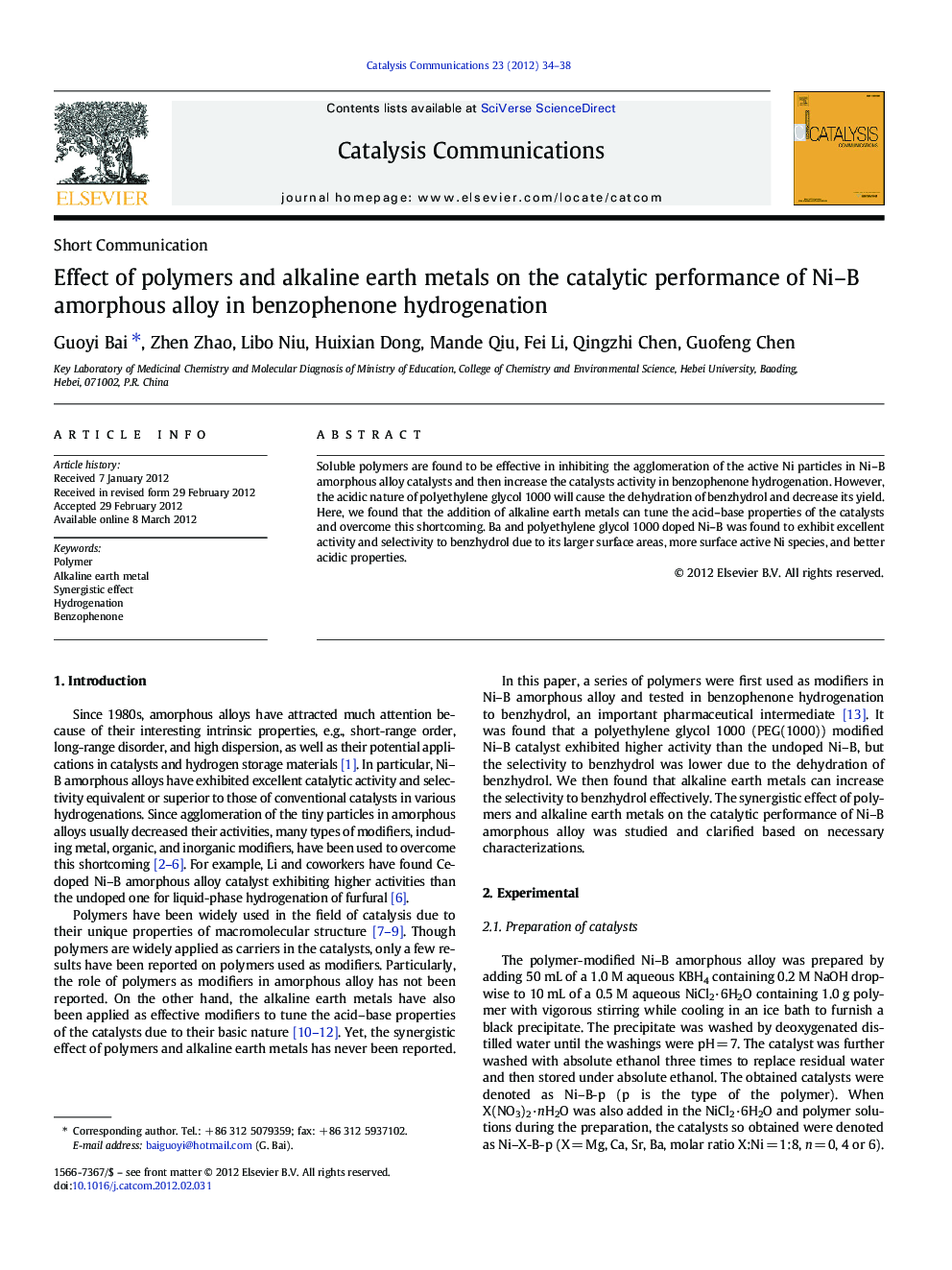| Article ID | Journal | Published Year | Pages | File Type |
|---|---|---|---|---|
| 50582 | Catalysis Communications | 2012 | 5 Pages |
Soluble polymers are found to be effective in inhibiting the agglomeration of the active Ni particles in Ni–B amorphous alloy catalysts and then increase the catalysts activity in benzophenone hydrogenation. However, the acidic nature of polyethylene glycol 1000 will cause the dehydration of benzhydrol and decrease its yield. Here, we found that the addition of alkaline earth metals can tune the acid–base properties of the catalysts and overcome this shortcoming. Ba and polyethylene glycol 1000 doped Ni–B was found to exhibit excellent activity and selectivity to benzhydrol due to its larger surface areas, more surface active Ni species, and better acidic properties.
Graphical abstractFigure optionsDownload full-size imageDownload as PowerPoint slideHighlights► Polymer was first used as modifier in Ni–B catalysts in benzophenone hydrogenation. ► Soluble polymers are effective in increasing the activities of Ni–B catalysts. ► Alkaline earth metals can tune the acid–base properties of Ni–B catalysts. ► Acidities of modified Ni–B catalysts were correlated well with their selectivity. ► Synergistic effect of PEG(1000) and Ba accounts for the catalyst's high activity.
